
7 minute read
2024 PROGRAM ACHIEVEMENTS
NDPI Continues to collaborate with PIND to enhance economic development and peace building in Nigeria’s Niger Delta. In 2024, PIND made significant programmatic achievements in both intervention areas.
Peacebuilding-Fostering Peace and Stability
Through its peacebuilding efforts, PIND in 2024 impacted an estimated 2,570 beneficiaries, surpassing the annual target by over 100%. Leveraging the Early Warning and Early Response (EWER) system, PIND produced and disseminated 54 peacebuilding data products, including 49 weekly briefs, three quarterly conflict trackers, one policy brief, and one annual conflict report, providing actionable insights to local, national, and international peace actors.
To scale grassroots peacebuilding interventions, PIND awarded grants to nine Community-Based Organizations (CBOs) across the Niger Delta, empowering them to implement tailored peace initiatives. Notably, the Sanab Development Foundation led a successful Violence Against Women and Girls (VAWG) awareness campaign in the region by engaging students, university officials, and traditional leaders to address intimate partner violence risks.
PIND also strengthened its Prevent Councils, expanding into three other Niger States in the Niger Delta to improve early warning systems, foster collaboration with traditional rulers, and promote proactive conflict resolution. Through its Partners for Peace (P4P) network, over 1,200 peace actors successfully resolved conflicts using 139 quality actions. Additionally, over 510,000 people across 66 communities in the Niger Delta reported improved safety and security in their communities.
PIND’s P4P network helped mitigate recurring clashes between farmers and herders in the rural communities by facilitating multistakeholder engagements that resulted in the establishment of a Conflict Monitoring Group to track and manage disputes. PIND’s peacebuilding initiatives, including cultural and arts-based activities that engaged over 1,600 participants, continues to drive meaningful change, contributing to safer and more resilient communities across the Niger Delta.
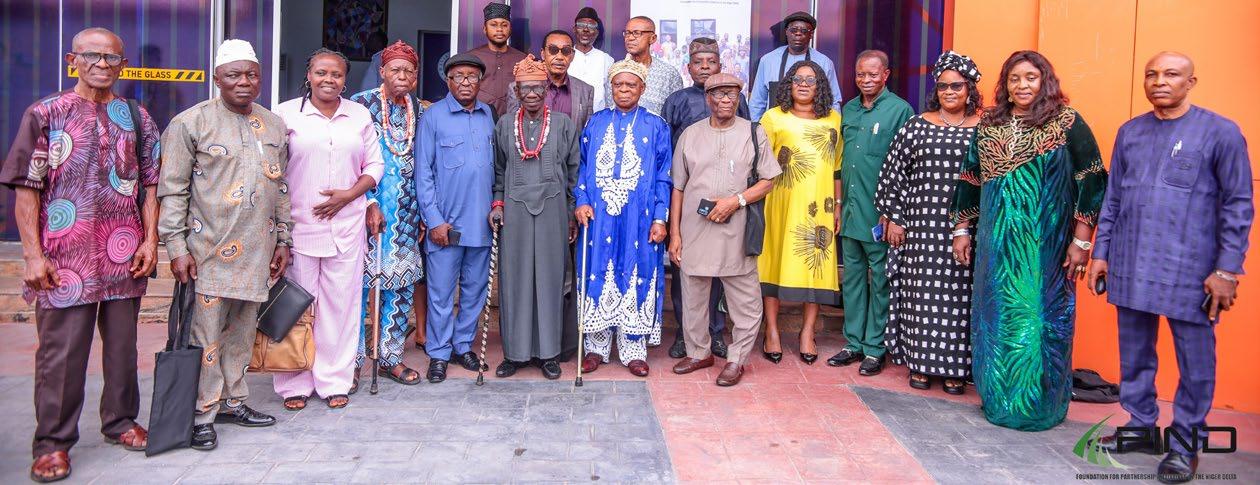
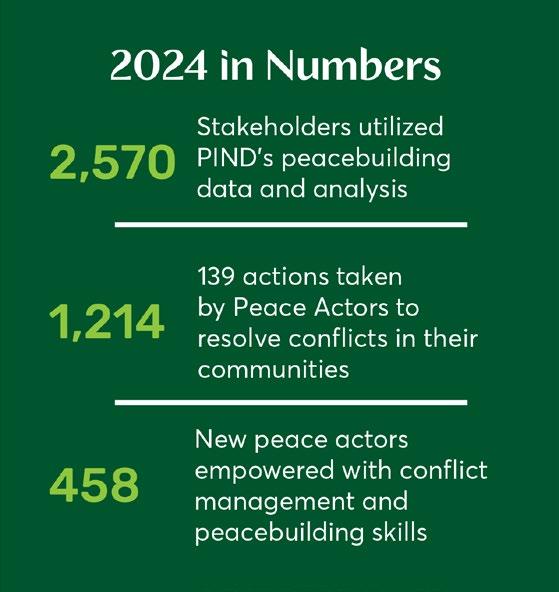
Testimonial
Before engaging with PIND, my approach to conflict resolution was largely reactive, addressing disputes only after they had escalated. PIND shifted my perspective, showing me that preventing conflict is far more effective than managing it after the fact. Since 2010, I have been involved in mitigating farmerherder clashes and community disputes, and in 2022, I was appointed Chairman of Non-State Actors in Delta State. With PIND’s continued support, we have successfully mediated land disputes and now utilize the Early Warning Early Response (EWER) system to proactively identify and address tensions. This has helped ensure that peacebuilding remains a central focus in our communities
- Dr Agara
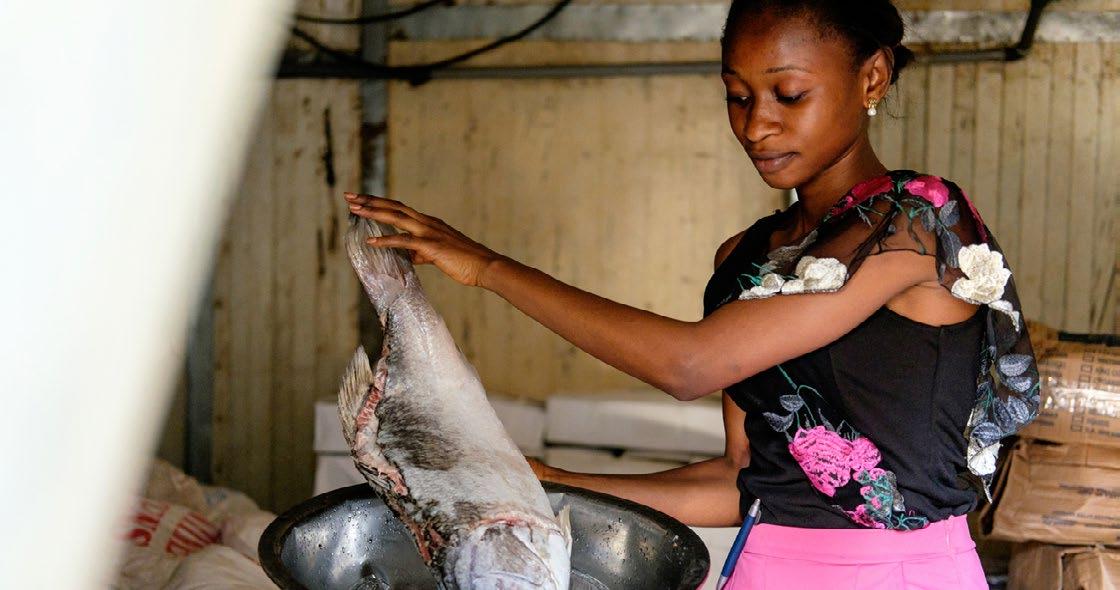
Economic Development- Driving Inclusive Agricultural Growth
PIND’s MSD program empowered over 101,825 farmers and micro, small and medium enterprises (MSMEs), exceeding the annual target by 20%. Farmers adopted improved agronomic practices, resulting in investments of $13.67m, 152.4% above the target of $8.97m. Adoption of these improved practices have led to significant financial gains, with farmers and MSMEs generating $25m in additional income in the region.
PIND’s MSD program empowered over 101,825 farmers and micro, small and medium enterprises (MSMEs).
The program also facilitated 22,544 full-time equivalent (FTE) jobs, exceeding the target of 13,000 by 173%. In partnership with Newland Pathways Integrated Consult and Marich Agro Allied Services, PIND supported 1,145 micro-businesses in two states, equipping fisherfolk and coastal entrepreneurs with improved skills and technologies. As a result:
• 272 fisherfolk were trained in improved fishing practices, boosting productivity.
• 3.05 million in market linkages was facilitated, connecting fisherfolk to broader financing and trade opportunities.
• 67 improved fishing technologies were adopted in coastal communities, reducing post-harvest losses and enhancing incomes
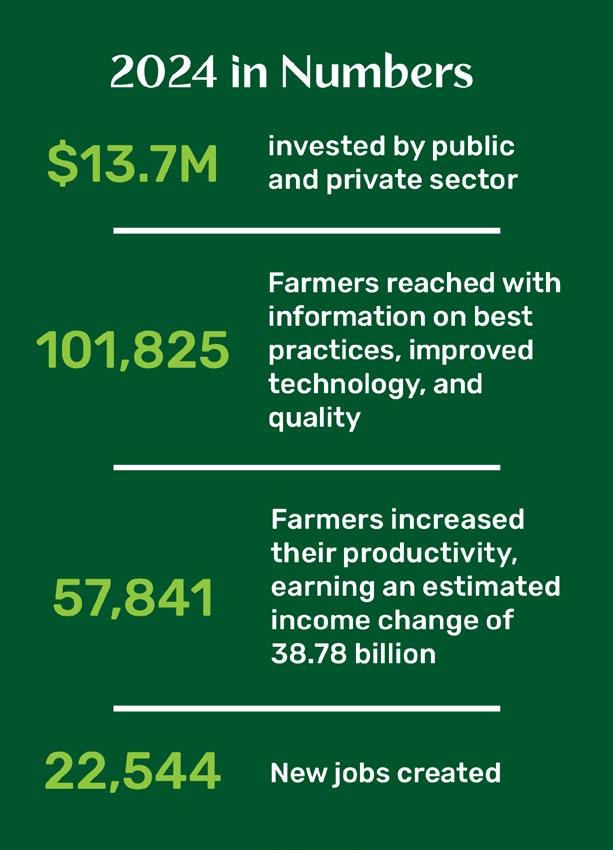
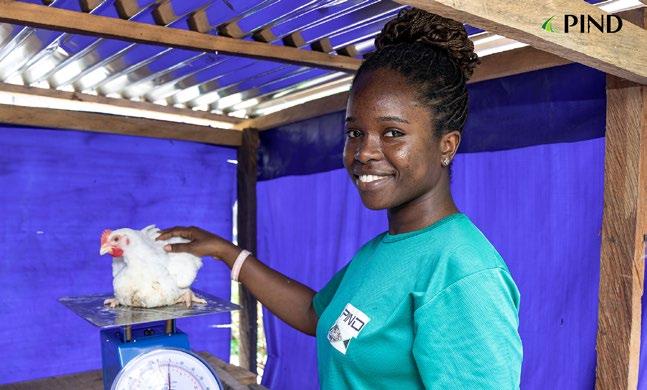
Testimonial
I was a classroom teacher with no background in cassava farming before my engagement with PIND. Through PIND’s training, I established a four-plot cassava farm and began supporting smallholder farmers with improved cultivation techniques to boost their productivity. In Obi Ayaga, Delta State, the farmers I mentored experienced significant increases in yield and income—progress that earned recognition and praise from community leaders. Inspired by this impact, I remain committed to expanding my efforts, promoting better farming practices, and empowering more communities across the Niger Delta.
– Zekeri
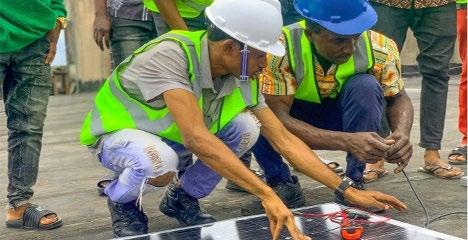
Access to Energy Expanding Clean Energy Solutions for Growth
PIND’s Access to Energy (A2E) program delivered transformative clean energy solutions to underserved communities. In 2024, solarpowered refrigeration hubs, each powered by 15kWp solar systems, were deployed in Delta State. These hubs supported over 500 fisherfolk, MSMEs, and households, significantly reducing postharvest losses by up to 40% and improving economic activities. The refrigeration hubs preserved over 1.2 metric tons of fish weekly, improving product quality and increasing market value. The hubs also enhanced healthcare services by providing stable electricity for medical storage and treatments. In collaboration with community leaders, PIND facilitated 5.8 million in local contributions to support hub maintenance, ensuring sustainability.
PIND’s energy program deepened engagement with Host Community Development Trusts (HCDTs), strengthening partnerships to align energy initiatives with broader development plans. PIND ensured long-term impact and improved energy access for underserved populations by integrating solar solutions into community-driven projects.
Solar-powered refrigeration hubs in Delta State supported over 500 fisherfolk, MSMEs, and households.
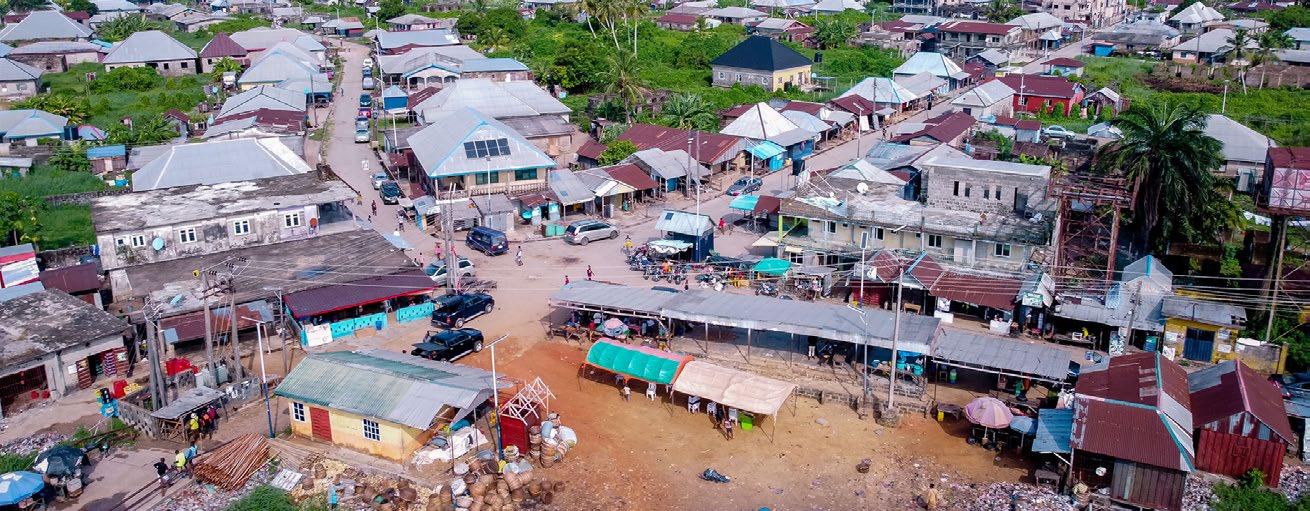
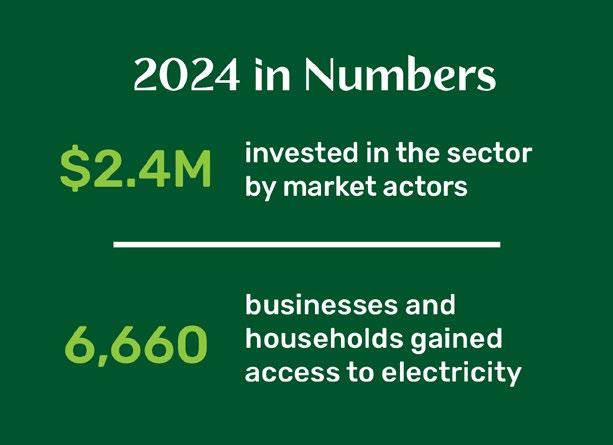
Testimonial
For years, many communities in the Niger Delta endured unreliable electricity, relying on expensive diesel generators that frequently broke down. In 2024, PIND introduced a community-managed solar energy project that has since transformed lives. Households now enjoy stable power, children can study at night, and local businesses run more efficiently. Beyond lighting homes, the project has fostered unity and a strong sense of ownership among community members.
– Patrick

Youth Employment Pathways- Equipping Youth with Skills for Future Opportunities
In 2024, PIND through its YEP program trained 1,454 youth to gain requisite skills required to start up their businesses or gain employment. 84% of the youth beneficiaries have successfully secured employment or started businesses. 1,223 graduates reported increased earnings after training, demonstrating tangible economic impact.
84% of the youth beneficiaries of PIND’s YEP program have successfully secured employment or started businesses.
The program facilitated 67 million YEP Business Start-up Challenge Fund grants for 114 businesses, including 60 women-owned and five PWD-led enterprises. These businesses spanned key sectors such as agriculture, construction, ICT, and services, enhancing their growth and sustainability.
Additionally, 294 youth were placed in internships and apprenticeships, enabling them to refine their skills and improve employability.
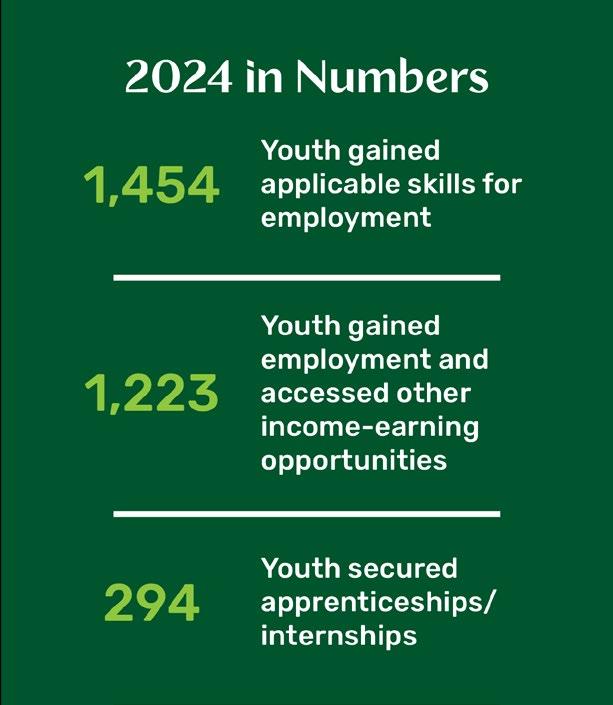

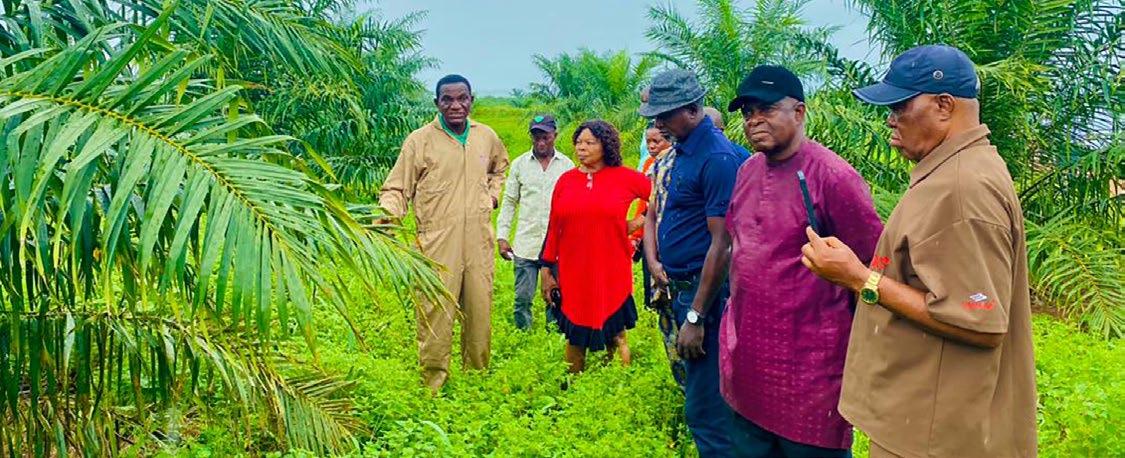
Driving Policy Reforms and Strengthening Partnerships
PIND collaborated with arable land committees in the Niger Delta to enhance land access for smallholder farmers and promote inclusive land policies. This was achieved through PIND’s partnership with the Ministry of Agriculture to finalize a land access policy draft for Ondo State., These efforts align with broader initiatives such as FAO’s FOLUR-IP project and the Master Card Foundation’s agricultural interventions.
PIND also tackled the issue of multiple taxation and illegal levies affecting small businesses in the Niger Delta. A landmark report highlighting these challenges was published, followed by a Regional Tax Reform Dialogue involving key stakeholders such as the Tax Justice & Governance Platform, SMEDAN, and the Port Harcourt & Aba Chambers of Commerce. As a result, a Technical Working Group (TWG) was established to advocate for tax policy reforms, aligning with national and regional economic strategies aimed at ensuring a suitable environment for the sustainability of micro, small, and medium Enterprises (MSMEs).
In Q4 2024, PIND strengthened its engagement with youth-focused agencies by participating in the 7th National Council on Youth Development (NCYD). This collaboration led to opportunities for apprenticeship programs, adopting the Youth Employment Pathways” (YEP) model across the region.
Under the Petroleum Industry Act (PIA) Bridges Project, PIND facilitated capacity-building workshops for Host Community Development Trusts (HCDTs) to improve governance, project sustainability, conflict resolution, and data management practices. The engagement also involved pitching energy solutions and development interventions to ensure sustainable community growth. PIND secured approval to transition the Bridges Project into a state-level MSP model with enhanced CSO participation for long-term sustainability. Through these targeted efforts, PIND continues to influence policies, strengthen partnerships, and promote inclusive development to drive positive change in the Niger Delta.







